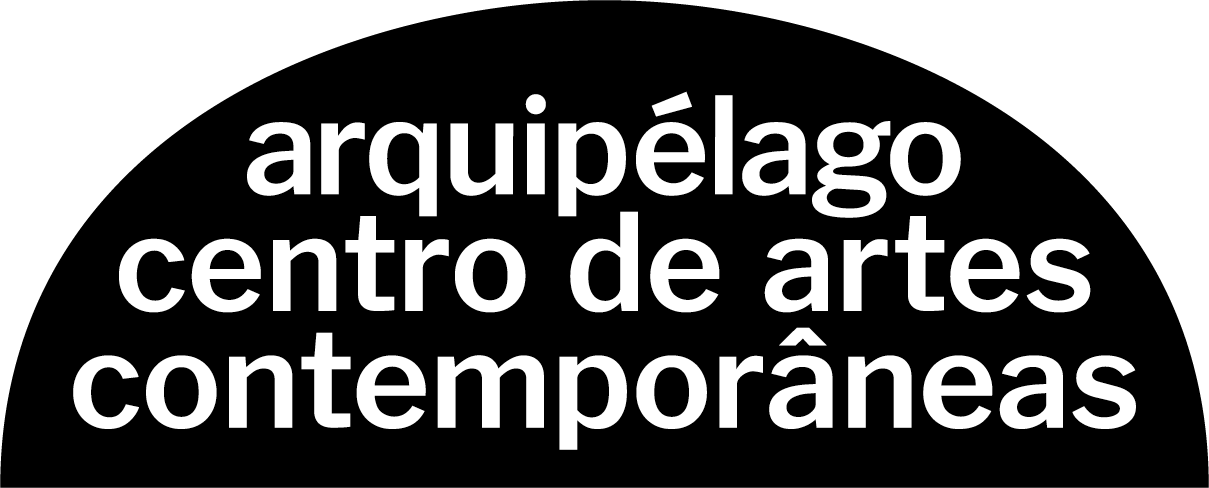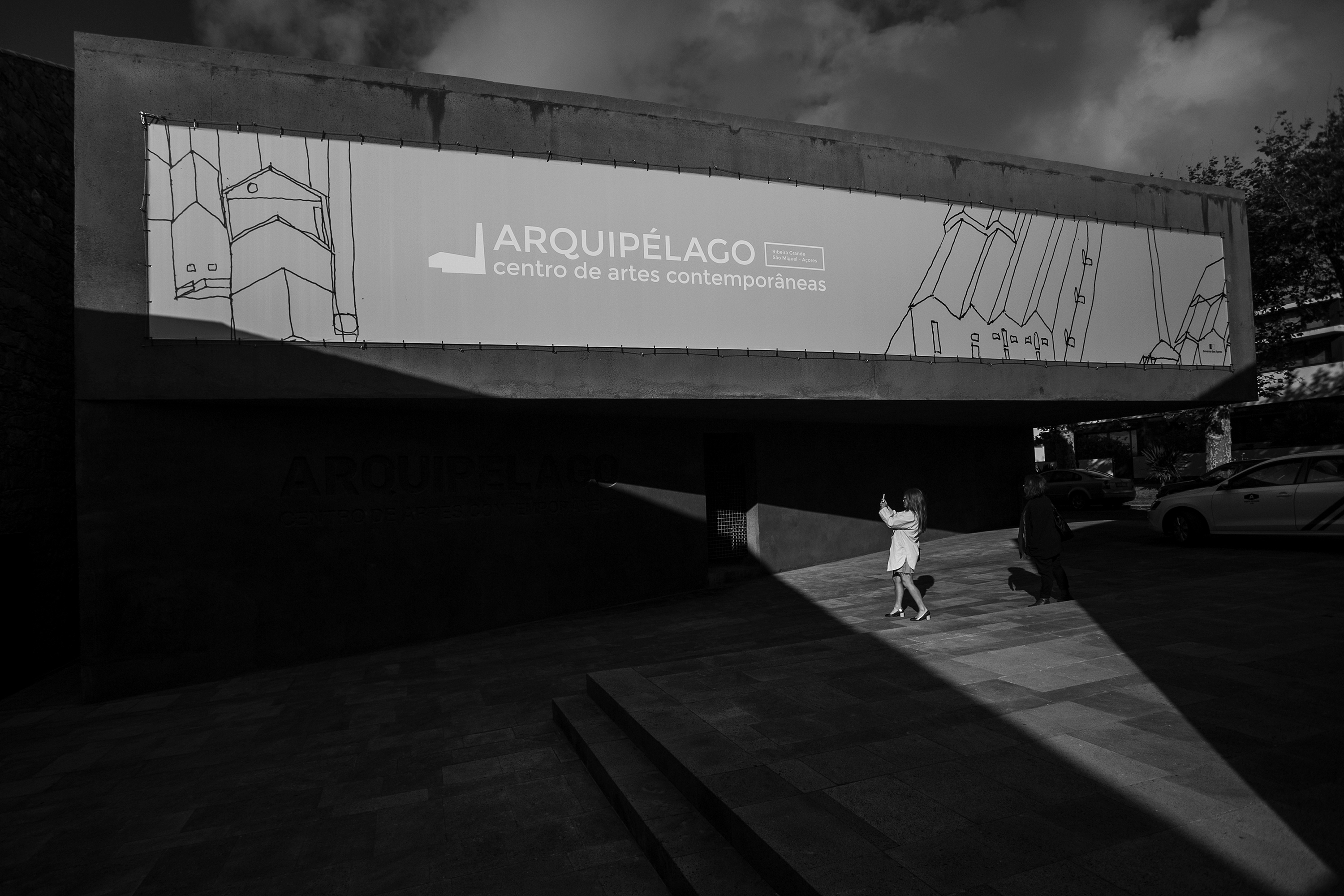Mission and Vision
Contemporary societies have to be in permanent reflection given the constant changes that people face at the political, geopolitical, economic, financial, social, cultural and technological levels, and we cannot help but think of the consequences of these changes. We currently live in a global world, where admittedly the word that best defines and characterizes it is Circulation. Circulation of people, information, ideas, knowledge, culture, goods, services and means, in short, an increasingly constant and consistent exchange and circulation.
For that reason, there are inescapable words that characterize contemporary life and society, and these are the words that the Arquipélago – Contemporary Art Center considers to be the pillars of cultural facilities, and they include: citizen, space, time, circulation, place(s), network(s), partnership(s), fluctuation, movement, sharing, traffic, criticism, communication, agitation, multiculturalism, community(ies), universality, diversity, Identity(ies), strategy, context(s), ideology(ies), market(s), development, respect, right(s), duty(ies), technology, mutability, dynamic, interconnections, crossing(s), interrelationship, multidisciplinarity, consumption, look, feel, observe, analyse, stage(s), landscape, record(s), reference(s), archive(s), and history.
In this sense, social responsibility, other(s), ‘statesmanship’, place/territory – the Azores Archipelago, space – Arquipélago – Contemporary Art Center, time, Art, Contemporary Architecture and Culture, multiculturalism, training, internationalization, and circulation are the vectors by which this cultural and artistic facility is governed. We want the Arquipélago – Contemporary Art Center to be a landmark space for reflection and knowledge concerning the different artistic areas.
We intend, therefore, to create a variety of audiences that feel and are interested in contemporary art and culture, according to the permanent changeability that characterizes modern society.
Strategy
The cultural sector (cultural industries) and the creative sector (creative industries) are the ones that have been shown to have the higher rates of economic growth worldwide and particularly in Europe.
In this sense, the important contribution of these sectors to the affirmation of a cultural/artistic identity that becomes relevant in a global and multicultural world has been recognized, and they equally help to improve the quality of life of citizens, therefore contributing to greater social cohesion.
At the political level, there have been several projects that support the local/regional, national and international cultural and creative development. Thus, we witness a double interrelationship both at the cultural, creative and artistic levels and at the territorial level, since the projects cover cultures and creativity and are rolled out in clearly defined territories but reach everyone’s territories.
In this sense, today nothing is though about, nothing is conceived, nothing is organized and nothing is managed without the clear idea that the way forward will naturally have to include the concept of globalization. However, this concept does not deprive projects of their local identity, as it only demonstrates and reinforces the knowledge and understanding that internationalization and the local/global dichotomy are a constant feature of the modern world.
From the point of view of a national and international cultural policy primarily centred on creation, dissemination and artistic production, the ARQUIPÉLAGO – CONTEMPORARY ART CENTER aims to be a ‘point of convergence’ of diverse cultures based on four geographical areas: Atlantic Islands, Americas, Europe and Africa, without forgetting the importance of the Diaspora.
In this sense, partnerships will be critical not only for the identity of the ARQUIPÉLAGO, but also for the conceptualization and formalization of a quality multidisciplinary and international calendar of art events.
Another key factor of this cultural facility is the enhancement of the heritage that includes not only the Arquipélago Contemporary Art Collection, but also the building that is in itself an architectural and artistic object and territorially speaking an ‘asset’, as it is a cultural icon of the AZORES ARCHIPELAGO.
The diversity of the ARQUIPÉLAGO is visible in the different artistic areas: visual arts, performing arts, multimedia, cinema, music, architecture, design, illustration, literature and fashion. Created as a dynamic centre for artistic and cultural events, the ARQUIPÉLAGO aims to place the Azores in the transatlantic path of exchanges, encounters and cultures. Therefore, the awareness, the creation and the training of people in the areas mentioned, in addition to issues related to the territory such as the environment, are part of the operating strategy of the Arquipélago – Contemporary Art Center.
Strategic Goals
- Promote the quality of the ARQUIPÉLAGO as an artistic and cultural space, as well as a space for knowledge, training, communication and social responsibility;
- Develop a calendar of cultural events that encompasses all areas of the Arquipélago – Contemporary Art Center (visual arts, architecture, performing arts, cinema, design, multimedia, music, literature and fashion) in order to raise public awareness of contemporary art and culture;
- Locate and contextualize the cultural identity of a territory and, in parallel, the local ↔ global;
- Stimulate the national and international artistic creation and production;
- Encourage creation in the Azores;
- Internationalize contemporary arts;
- Strengthen policies for the acquisition and dissemination of the contemporary art collection of the ARQUIPÉLAGO;
- Promote multidisciplinary art projects with the involvement of the community;
- Generate the loyalty of various audiences, both general and specialized, catering to their specific characteristics and needs;
- Develop national and international multidisciplinary and multicultural projects that approach contemporary art and culture both in terms of artistic creation – artist-in-residence programs – and at the theoretical level – seminars and debates, contributing to training and to artistic practice and production;
- Strengthen a communication strategy integrated in an international network;
- Foster closer relations between the ARQUIPÉLAGO and national and international academic institutions and Azorean schools, activating the exchange of assets in order to enhance the production/editing of cultural and scientific values;
- Cement an editorial policy according to the different operating areas of the Arquipélago and according to international standards;
- Foster collaboration with different national and international public and private entities, with the aim of setting up networks, partnerships, sponsorships and funding to ensure the programmatic conceptual autonomy;
- Turn the ARQUIPÉLAGO into a space of reference as an artistic meeting point, particularly for four geographic areas: Atlantic Islands, the Americas, Europe and Africa;
- Cooperate with the external services and cultural activities of the Regional Directorate of Culture of the Azores so the different calendars of cultural and art events can be coordinated;
- Contribute to the appreciation of the place/territory/landscape – Azores Archipelago –through a connection between arts and environment;
- Demonstrate the importance of the ARQUIPÉLAGO as a product for cultural tourism.
Team
Director | Ricardo Esperanço
Administrative Services | Joana Santos, Ricardo Oliveira
Financial Management | Marco Ventura, Débora Raposo
Production | Dalila Couto
Communication and Design| Bárbara Ávila Pacheco, Andreia Oliveira, Mariana Carvalho
Audiovisual and Multimedia | Marco Machado, Luiz Furtado
Museology and Visual Arts | Diogo Aguiar, João Machado
Documentation Center and Library | João Almeida
Mediation Service | Andreia Oliveira, Beatriz Brum, Sofia Carolina Botelho
Shop/Bookstore | Sabrina Vieira, Patrícia Bento
Reception and Museum Guards | Filipe Simas, José Paulo dos Santos, Leontina Rodrigues, Nuno Roque, Pedro Batista, Ricardo Ferreira
Building, Equipment and Museography | Raquel Teves, Luís Bettencourt Reis
Installation Staff | Diogo Daniel, João Marques, João Silva



